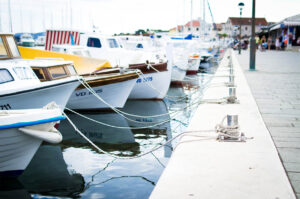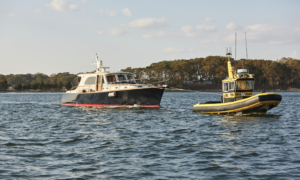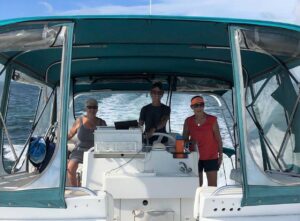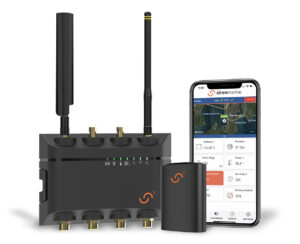Long-distance boaters like to say cruising can be defined as working on the boat in exotic locations. Hopefully, it’s more than that, but unexpected breakdowns happen. Even without emergency repairs, if you travel over long distances or time, stopping for regular maintenance during a trip is almost guaranteed. At home, most boaters have favorite service providers, the knowledgeable mechanic who knows their boat or the electronic technician familiar with the boat’s wiring. But how do you find trustworthy services when traveling? You can try several steps to getting repairs done successfully when you travel. The first is to compile detailed information for major components on your boat.
Today’s manuals are easy to keep digitally. Gone are the days of a cabinet full of binders with all the system manuals. They can be downloaded from manufacturers’ websites and stored in PDF format on a laptop, tablet or phone. File storage and management apps like GoodReader make them a breeze to categorize, access and read. Kept electronically, they don’t depend on an internet connection to read. Backed up to an external drive or cloud service, they are not lost if the device is missing or malfunctions. Some manuals are generic, so it helps to have the specific model and serial number for your equipment and components.
PDF format makes it possible to keep manuals for everything on the boat. The engine manuals are obvious, but at a minimum, add manuals on the transmissions, generators, heating and cooling systems, water pumps, marine heads, windlass, all navigation electronics even appliances. PDFs can even include drawings, wiring schematics and plumbing diagrams. We have more than 100 manuals on our iPads and backed up on a cloud server. Every manual for every conceivable item on the boat is included from the toaster to the transmission.
SPARE PARTS
If you’re MacGyver, all you need to keep your boat running is a Swiss Army Knife, some wire and duct tape, but lacking that resourcefulness, keep a complete set of spare parts aboard the boat. Like so many things in boating, how a boat is used drives many of the decisions. The list of spares kept aboard is different for a day boater in confined water versus a boater who intends to travel days at sea in the open ocean. But all boaters should have common items on board, including but not limited to belts, filters, fuses, navigation light bulbs and necessary fluids, oils and coolants. Having the part on hand eliminates the time and cost of shipping repair parts. Many manufacturers provide a list of recommended spares, and some sell spare part kits preassembled.
KNOWLEDGE IS POWER
A wealth of information is available in forums and on other online sources of people who may have experienced your same trouble with a system. You don’t have to understand how the generator converts mechanical energy to electrical current, but when it’s not working, searching the internet with the symptoms of the problem can make you better informed to speak with a mechanic. It also prevents a poorly trained mechanic from misleading you as to a cause or solution.
If you’re MacGyver, all you need to keep your boat running is a Swiss Army Knife, some wire and duct tape, but lacking that resourcefulness, keep a complete set of spare parts aboard the boat.
CALL AHEAD
If you are going to travel far or for an extended period, identify authorized service companies in that area for the boat’s major components. You can find general engine mechanics or electrical technicians knowledgeable in their trade, but it’s better to have a factory-trained person with specific knowledge of your engine or radar brand. If you plan to take the boat to Newport for the summer or Miami for the winter, call ahead to service providers in that area. Speak with service managers and ask about their capabilities. Do they have mobile service, or will you need to bring the boat to them? Making connections ahead of time could expedite your call if you need service.
INDEPENDENT QUALITY STANDARD
Look for service centers or boat yards that employ American Boat & Yacht Council (ABYC) certified technicians or ones affiliated with organizations such as the American Boat Builders & Repairers Association (ABBRA). These groups provide training and standards for their members, adding another level of assurance you’re hiring a knowledgeable technician. Wherever possible look for a boatyard or service company with multiple locations. Your favorite company at home may have another location where you will be traveling. Now you’re not a stranger calling with a problem; you’re an existing customer who should be treated to a higher level of service. Traveling to distant places by boat is an exciting way to enjoy boating; however, breaking down away from home can ruin the adventure. A little research and preparation ahead of the trip can keep the adventure alive.





